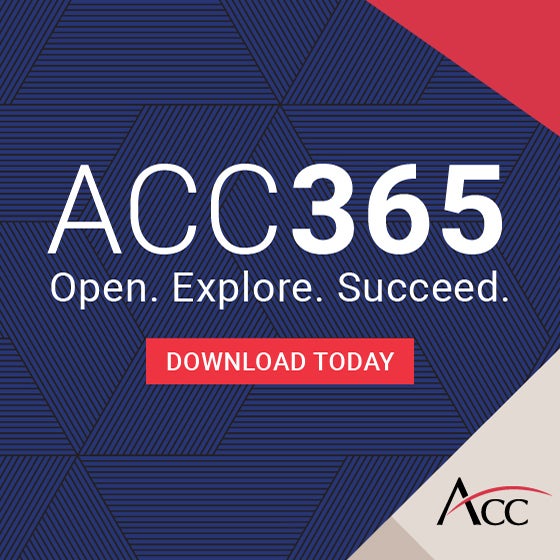ACC recently requested to file an amicus curiae brief in Glencore International AG vs Commissioner of Taxation of the Commonwealth of Australia, a case before the High Court of Australia regarding documents obtained in the 2017 Paradise Papers leak.
The Glencore Case and Legal Professional Privilege
ACC recently requested to file an amicus curiae brief in Glencore International AG vs Commissioner of Taxation of the Commonwealth of Australia, a case before the High Court of Australia regarding documents obtained in the 2017 Paradise Papers leak.
In late March 2019, ACC sought leave to appear as an amicus curiae to support plaintiff Glencore International’s claims of privilege, as well as to address the broader international implications of the Court’s eventual decision.
Glencore International has asked the High Court to compel the Taxation Commissioner to return documents that Glencore asserts were obtained illegally and should have been protected by legal professional privilege.
ACC asserts that the privilege holder has a right to restrain third parties’ use of privileged documents, and that this right is not waived by Australian tax law (s.166 of the Income Tax Assessment Act 1936).
ACC’s submission further points out that the Court’s decision has key implications for law worldwide; the privilege in question stems from communications with a Bermudan law firm. Furthermore, the decision could put Australia on the map as “a desirable place for hackers to leak stolen privileged documents” if the Court does not restrain third parties’ access to privileged materials. ACC further asserted that “Given the increasing number of cyberattacks on law firms, it is essential that the Court recognise that legal professional privilege still applies in this case” and “Allowing the government or any other third party to retain and use privileged documents in this manner undermines client candour and entirely thwarts the purpose of legal professional privilege.”
Unfortunately, the High Court determined, “due to the position and resources of the existing parties” (Glencore and the ATO) and “their ability to address all relevant issues”, that the Court would not be further assisted by ACC's submissions and leave has been refused. No additional feedback was provided by the Court.
The High Court hearing followed on 17 April 2019. ACC’s submissions have been uploaded to the High Court website as has the transcript of the 17 April High Court proceedings. (http://www.hcourt.gov.au/cases/case_s256-2018).
On 17 April the High Court reserved its decision in this matter, and adjourned to 2.15 pm on Monday 6 May 2019 in Canberra.
Related entities - submission to the Legal Services Council
ACC Australia has been advocating for several years for a broader definition of ‘related entity’ under s.6 of the Uniform Law, and ideally for ‘related entities’ to include related bodies corporate as defined under s.50 of the Corporations Act. Such a change would broaden the entities to whom in-house lawyers in Victoria and NSW (and soon WA) can advise and overcome some of the existing practising certificate constraints. ACC Australia’s reasoning is set out in its 2015 submission to the LSC.
The Legal Services Council recently sought ACC Australia’s comments on a preliminary proposal to broaden the definition of 'related entity' and therefore the scope of work of 'corporate legal practitioners' as follows:
That a new term 'entity' which includes related entities, joint ventures and unincorporated associations of persons be introduced with a limitation of the controlling entity having at least 50% control over the other entity. Uniform Rules may provide for professional indemnity insurance requirements and other factors to be considered by the corporate legal practitioner and employer to maintain the independence of the legal practitioner.
ACC Australia sought its members views on this proposal and incorporated these views into its response to the LSC dated 11 April 2019. We will keep members updated on this important issue.
Victorian Legal Services Board's position on related entities
ACC recently met with the Victorian Legal Services Board and Commissioner (VLSBC) to discuss the challenges for Victorian corporate lawyers given the constraints associated with the “related entities” definition in the Uniform Law. As background, to address these constraints some corporate lawyers are taking out a Principal Practising Certificate (PPC) which requires them to then take out professional indemnity insurance, contribute to the Fidelity Fund and comply with other reporting requirements of the “designated local regulatory authority” (i.e. local Law Society) – none of which apply to in-house counsel holding just a Corporate Practising Certificate.
In response, the VLSBC has issued a communication which sets out its position on this issue. Importantly, the VLSBC states “Irrespective of the current limited nature of the definition of ‘related entity’, we believe that you and your employer are best placed to determine the entities related to your employer that you can properly advise in your role as in-house counsel. We do not propose to play a role in determining this.” ACC Australia believes this to be a pragmatic approach to the issue by the VLSBC and encourages all Victorian ACC members to review this paper and take the VLSBC’s position into account when determining the related entities they should advise and whether to take out a PPC.

